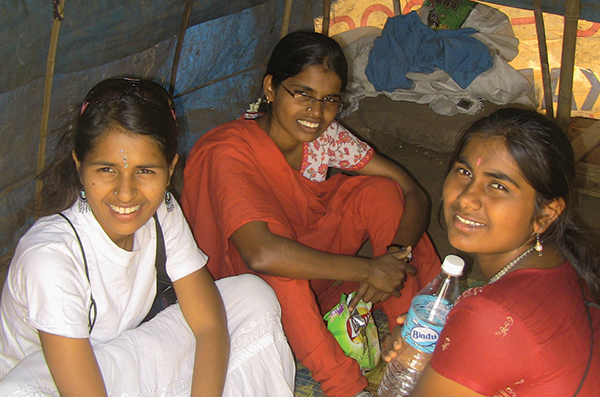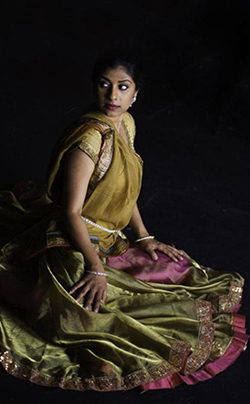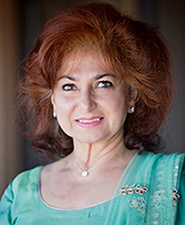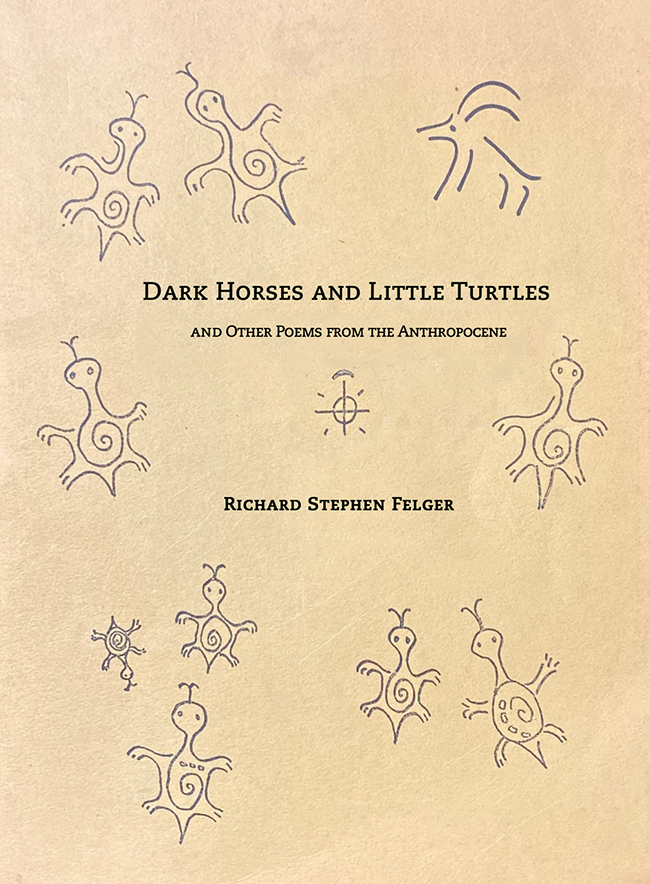Beautiful Souls Born Under Different Circumstances
UA brings a documentary film, a one-women play and a series of workshops to Tucson for the Women’s Empowerment and Human Rights events this November.
“Most of society doesn’t even notice that the people who live in tents even exist. They too are beautiful souls born under different circumstances.” These are the quotes closing The Tent Village trailer, a film featuring footage shot by four young women in India who document the circumstances in which they were raised.

The film crew of “The Tent Village” documentary taking a break. The film is being screened at The Loft Cinema on Tuesday, Nov. 14 at 6 p.m. as part of the UA’s “Women’s Empowerment and Human Rights” series of events.
Photo courtesy Nilima Abrams
There’s beautiful footage of smiling children and families, juxtaposed by the staggering weight of issues faced in India’s marginalized communities. “Their lives are really hard,” shares one of the filmmakers in the trailer. “My mother got married when she was 13 or 14. My uncles just wanted us to work collecting recycled things.” Children drop out of school because the teachers beat them, families build tents supported by wire or wood frames in shanty towns.
“They accept that they are untouchable, low caste, and forget who they truly are.” It is an astute statement by one of the documentarians that raises so many issues regarding the subjugation of women, child abuse, alcohol abuse, socioeconomic oppression, searing societal judgement, and the how those damaging prejudices can stunt our ability to recognize and embrace our infinite capacity to seek and fulfill our dreams.
“That quote about accepting being low-caste epitomizes the cycle whereby they have been oppressed externally for so long, that they have sometimes internalized the negative attitudes and the cycle continues,” reflects Nilima Abrams – a documentary filmmaker who is also a social entrepreneur and lecturer at University of Vermont. Abrams worked with the film’s documentarians to create The Tent Village, a 30-minute film that is screening at The Loft Cinema on Nov. 14 at 6 p.m. as part of The Loft’s film festival and the UA’s Women’s Empowerment and Human Rights events.
Abrams met the four women – Aliveli, Saritha, Maheswari, Ganga – when they were teenagers in 2009 and taught them basic filmmaking. It took seven years, from initial shooting to film editing, to complete The Tent Village – which also includes the stories of the young filmmakers.
“While they wanted to help viewers overcome the stigmas that people from certain areas face, I think they also (understandably) feared those stigmas on themselves; or just didn’t really see the point to sharing their own stories and were initially shy to do so,” Abrams explains via email. “So, we worked together to integrate their stories in such a way as to (hopefully) break down stigma/stereotype by proudly including themselves as guides and proof of human potential regardless of gender/class/caste background. Once they saw themselves as the leaders that they are, I think they became more confident to share their stories. So, I filmed them reflecting on their footage, but all of the shots at the ‘tent village’ they did on their own, when I wasn’t even in India.”
Two of the filmmakers, Aliveli and Saritha, will be at the Nov. 14 screening.
***
A play with similar themes, Honour: Confessions of a Mumbai Courtesan, by UA alum Dipti Mehta, shows at the Temple of Music and Art on Nov. 17 at 7 p.m. as part of the Women’s Empowerment and Human Rights week of events. Mehta, a cancer researcher who holds a Ph.D. in molecular and cellular biology, is the playwright and performer in the one-woman production she created “to raise awareness and break down the social stigma that exists around sex workers.”

Dipti Mehta in her one-woman play “Honour: Confessions of a Mumbai Courtesan,” being performed at the Temple of Music and Art on Friday, Nov. 17 at 7 p.m. as part of the UA’s “Women’s Empowerment and Human Rights” series of events.
Photo by Kyle Rosenberg
On her website, Mehta explains the questions she had as a child from catching glimpses of the red-light district in South Mumbai, India, as the bus she rode on passed by brothels. As she grew up, Mehta became aware of what was happening in those neighborhoods and started delving deeper into questions of social stratification, stigma, child abuse, sexual abuse, and oppression.
“I am still asking questions to the society,” she writes via email. “I still don’t understand why a woman’s honour has to do with her virginity or her sexuality. And why men are not being brought to the same standards as women even though they are equally to be blamed. I am still asking why respect has to do with what you do for a living and what you wear and where you live? I am still asking, when a 6-year-old is raped, how is it that it was her fault? How can a man say, ‘It was her fault that I raped her’? I still don’t understand how our society breeds a father who rapes his 6-year-old daughter and then sells her to other men.”
In India’s South Mumbai red-light districts, women and children are forced into this corner of society either by trafficking, being sold by their own families, or through destitution. Once in, it is hard for the women to get out of that life because of social attitudes. “Once they have been broken into (which means they have been raped),” Mehta shares, “they don’t have an alternative. Their families won’t take them back because of the social stigma or they would not go back because of the shame.”
Through Honour, Mehta hopes to humanize people living and working in the red-light districts. “The play touches upon a lot of themes, but most important of it all is that we are trying to connect hearts. Through the show, I want people to fall in love with people – not with what they do and where they live. I want them to experience hopes and dreams of a young girl and find that they are no different than a girl born elsewhere, and that the only difference is the playing field is not equal. While a girl born in a normal family has the opportunities and support to make her dreams come true, a girl in the red-light district does not.”
***
It took a dedicated committee to bring together the Women’s Empowerment and Human Rights events, but a lot of the heavy lifting can be attributed to UA Professor William Simmons and Tucson philanthropist Neelam Sethi.

UA Human Right Professor and activist William Simmons
Photo from UA
Throughout his academic career, UA Professor William Simmons has worked on human rights issues – from sex workers’ rights to projects in such places as The Gambia, Niger, Nigeria, China, Mexico, and the U.S. Simmons was the founding director of the Masters’ program in Social Justice and Human Rights at ASU, spearheaded the launch of GlobalHumanRightsDirect.com, and – as he shared via email – Simmons and his colleagues “have recently created a fully online graduate programs in human rights practice at the UA that we hope will attract students and instructors from around the globe.”
The week of events is connected to the launch of the human rights practice graduate programs, and they plan to continue to host events, such as online webinars, film showings, and public talks. More information on the program is at HumanRightsPractice.arizona.edu.

Tucson philanthropist Neelam Sethi.
Photo courtesy Neelam Sethi
On Neelam Sethi, UA Professor of Medicine Dr. Esther Sternberg – who is also part of the event committee (along with The Loft Cinema’s Executive Director Peggy Johnston and Tucson philanthropist Betty Anne Sarver) – wrote via email: “Neelam has worked tirelessly behind the scenes from the inception of the idea for linking the Honour play and The Tent Village documentary under the Women’s Empowerment Week umbrella. With her deep experience staging many wildly successful events for philanthropic causes, including the Heart and Stroke Ball, Bollywood at the Fox, Tu Nudito fundraisers and others, Neelam is as skilled as any major media producer in pulling it off.”
Sternberg, who is also UA’s Arizona Center for Integrative Medicine Research Director and the Director of UA Institute on Place and Wellbeing, additionally shared that what drives Sethi “more than anything is her passion for the causes she supports, and for spreading the word about Indian culture even in the face of sometimes difficult issues that might be part of it. The opportunity to help correct such issues through awareness is part of her driving force, which inspires all others involved in the staging of the events. Through all this Neelam is the essence of an empowering woman!”
The Women’s Empowerment and Human Rights events happen from Nov. 14-17. More information on the events, the film and the play are online at https://sbs.arizona.edu/news/events-supporting-womens-empowerment-and-human-rights.





Also find us on...